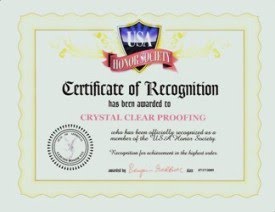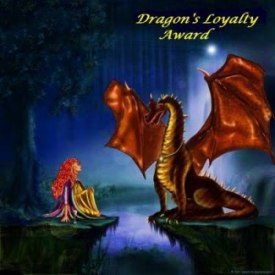
How to use apostrophes with possessive nouns can, at times, be a little tricky. Here are a few tips on how and when to use the apostrophe when forming the possessive of certain nouns:
SINGULAR NOUNS
To form the possessive of a singular noun not ending in an s sound, add an apostrophe plus s to the noun.
Crystal's blog
California's coastline
To form the possessive of a singular noun that ends in an s sound, be guided by the way you pronounce the word.
a. If a new syllable is formed in the pronunciation of the possessive, add an apostrophe plus s.
The boss's approval
St. Louis's airport
b. If the addition of an extra syllable would make a word ending in an s sound awkward or hard to pronounce, add the apostrophe only.
Los Angeles' freeways
For goodness' sake
New Orleans' restaurants
For convenience' sake
PLURAL NOUNS
For a regular plural noun (one that ends in s), add only an apostrophe to form the plural possessive.
Investors' objectives
The witnesses' contradictions
The United States' policy
Attorneys' fees
The agencies' rules
REMEMBER...
Plural nouns that end in s take only an apostrophe, while singular nouns that end in s take an apostrophe plus s, (unless the apostrophe plus s sounds awkward).
The bosses' office - plural
The boss's office - singular
Los Angeles' freeways - singular, but Los Angeles's freeways sounds awkward.
For an irregular plural noun (one that does not end in s), add an apostrophe plus s to form the plural possessive.
Women's coats
Children's toys
A good way to avoid mistakes in forming the possessive of plural nouns, is to form the plural of the noun first, then apply whichever grammar rule above fits:
Singular Noun------------Plural Noun------------------------Plural Possessive
boy----------------------------boys (regular)----------------------boys'
boss--------------------------bosses (regular)------------------bosses'
child--------------------------children (irregular)----------------children's
mother-in-law--------------mothers-in-law (irregular)-------mothers-in-law's
An additional note...
Now to completely confuse you, some constructions can be tricky. For example, the use of back-to-back possessives. Say, for example, you want to refer to the children belonging to two brothers of your father, (i.e., your cousins). The double possessive would be: My father's brothers' children. You could even have a triple possessive with: My father's brothers' children's books. Ouch. Obviously best to stick with your cousins!
Also, a more common problem is the use of a possessive form when ownership is involved. Take the example above of: mothers-in-law's. Obviously we're referring to a possession of two or more mothers-in-law. Rather than, The mothers-in-law's purses, you could opt for: The purses of the mothers-in-law.
ADDENDUM...
I'm including this excerpt, as you will note is also in the reply to Diane's comment. Whether to add just the apostrophe or the apostrophe plus s to possessive nouns, including names, is very controversial; there seems to be no absolute and clear-cut rule:
According to the Chicago Manual of Style, for nouns ending in s: "the possessive of most singular nouns is formed by adding an apostrophe and an s, and the possessive of plural nouns by adding an apostrophe only...this practice is used in conjuction with the way possessive forms are generally pronounced." It goes on to add that, "...feelings on these matters sometimes run high..." thus ending in numerous exceptions and modifications to the general "rule."
Sources: Gregg Reference Manual, CMS, Grammarmudge

































































So if a name ends in s, then the use of an apostrope AND another s depends on how the word sounds spelled as thus?
ReplyDeleteDiane: Pretty much. It's a very gray area. Some references are adament about just adding the apostrophe, others insist it's apostrophe and "s."
ReplyDeleteAccording to the Chicago Manual of Style, for nouns ending in s:"the possessive of most singular nouns is formed by adding an apostrophe and an s, and the possessive of plural nouns by adding an apostrophe only...this practice is used in conjuction with the way possessive forms are generally pronounced." It goes on to add that, "...feelings on these matters sometimes run high..." thus ending in numerous exceptions and modifications to the general "rule."
(Los Angeles' freeways is an excellent example of it sounding blatantly awkward to add the apostrophe and the "s." In an instance like this you would use just the apostrophe.)
Excellent and very thorough. Got this one copied and stored along with ALL your tutorials in my Crystal Clear Writing folder. :)
ReplyDeleteAnother excellent post. I always have trouble with these.
ReplyDeleteI hate dealing with possessives to the point where I go out of my way to avoid naming characters anything that ends in "S". Not always possible. And then there are the times when even that doesn't work because although the surname is "Kretzer" when referring to their home, it becomes "the home of the Kretzers" which makes it plural.
ReplyDeleteHowever, I have found that whether one writes "Doris's" or "Doris'" often depends on the house style of the publisher.
Good one! I'm tweeting this.
ReplyDeleteElizabeth
Mystery Writing is Murder
Clear and concise. Thanks.
ReplyDeleteElspeth
That possessive S has at some points been the bane of my existence... I knew it could go back and forth, but i didn't know it could technically be correct both ways in the same doc depending on how it sounded! I have a fan fiction history... the Potterverse.... Lucius, Severus, Albus... (and all of them own things! ARGH!) *snicker* (so thanks for this)
ReplyDeleteThank you everyone! I must admit it was with some trepidation that I even addressed this issue. To explain a topic that has so many little nuances was indeed a challenge.
ReplyDeleteTerry: You're absolutely correct in that how the apostophe is used in words ending in "s" or those that end with an "s" sound ("z" for example) is not only many times the personal preference of the writer, but also of the publisher.
I had to leave shortly after posting this, and the entire time I was gone I was nervous as all get out that I would come home and find a lot of totally confused people, having left comments along the lines of, "WHAT are you talking about?" I'm so relieved that the "gist" of this was concise, and apparently you "got it!"
Thank you all again! (WHEW!) LOL ...
Great article! Thanks for the examples too.
ReplyDeleteConfusing topic, excellent post. I usually go for what sounds comfortable .... just wrote an article about Nathaniel Ayers and talked a lot about Ayers' talent etc. Seemed right to me, but who knows if some stickler out there is cringing? Many people really do not know at all how to handle these pesky little things, so thanks for 'splaining it so nicely.
ReplyDeleteExcellent post! I enjoyed this a lot. I've had a couple run-ins with this and was curious. I was also going to say that this would be tricky with publishers involved as well! Great blog. :)
ReplyDeleteAnd I thought people were giving the apostrophe the flick, must only be gen-y. Thanks for an excellent post.
ReplyDeletehow about office file?just add an apostrophe?that is office' file?
ReplyDelete